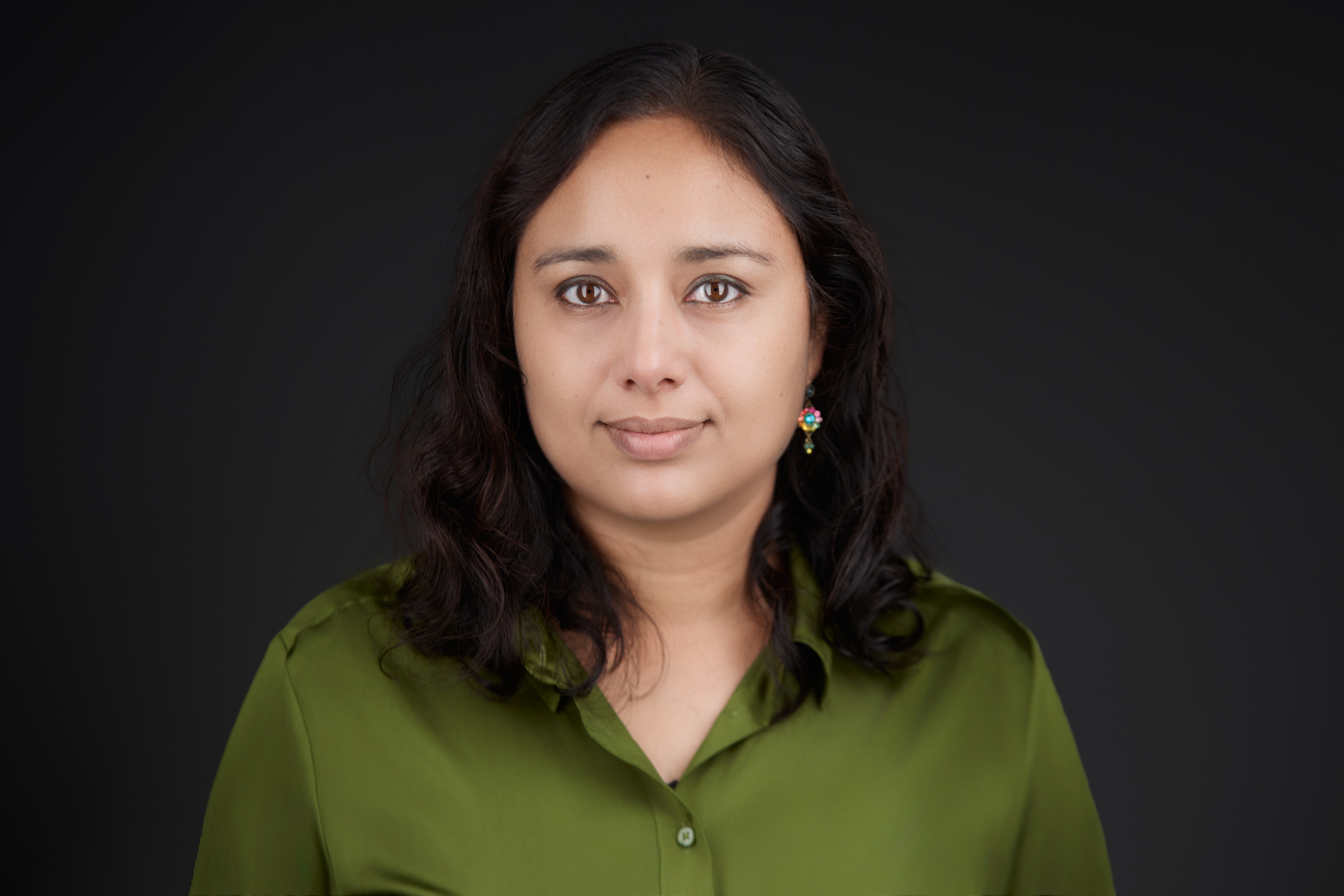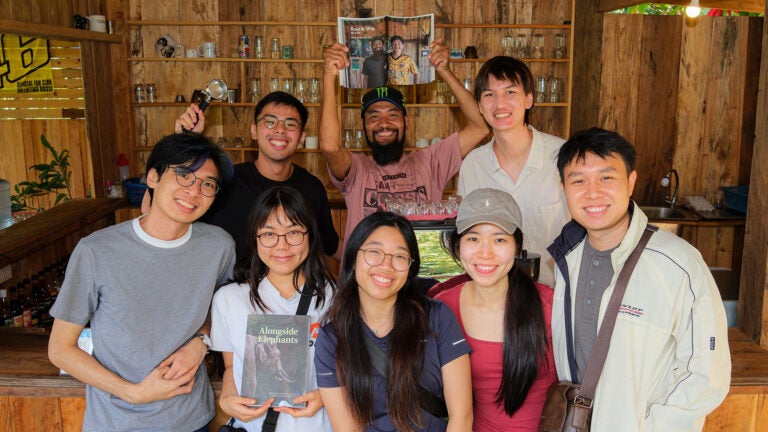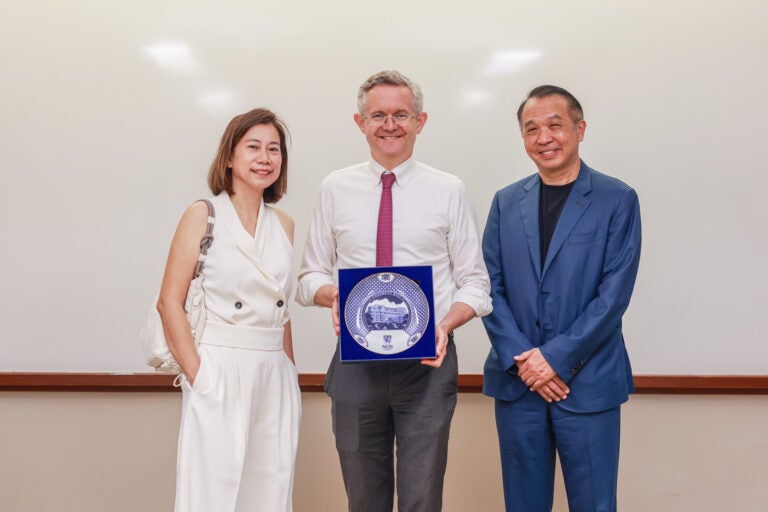By Siddhika Didel (Economics + NUSC ’26).

Professor Mangala Srinivas (Biochemistry + USP ’02) was recently appointed as one of the seven Chief Scientific Advisors to the European Commission, making history as the first Singaporean and non-EU citizen in the role. The advisors form the Group of Chief Scientific Advisors (GCSA) within the Scientific Advice Mechanism (SAM), which provides independent, evidence-based advice directly to the highest levels of EU policy-making. In a conversation with us, she reflected on her journey, the challenges of diversity in science, the impact of policy, how her USP days shaped her and managing across research, policy, and personal life.
Currently a full Professor at Wageningen University & Research in the Netherlands, Professor Srinivas’s research focuses on nanotechnology and imaging agents, some of which are now entering clinical trials. Her research has also led her to co-found Cenya Imaging B.V. Beyond the laboratory, her new role positions her at the nexus of science and policy, advising on issues ranging from cancer screening to sustainable agriculture.
On her award, Professor Simon Chesterman, Dean of NUS College, shared, “It brings us immense pride and joy to see our USP alums making such a significant impact on the international stage. Her achievements are especially meaningful… it is truly flying the Singapore flag high.”
Diversity in Leadership
As the first Singaporean and non-EU citizen appointed to the group, Professor Srinivas recognises the symbolic weight of her position. “Europe is diverse – it has never been homogeneous. It is important for people to see this diversity reflected in prominent science positions,” she explained. For her, diversity is not just a talking point but a lived experience. She added that female professors still account for less than 30% in the Netherlands, with parity projected decades away. Progress, she argued, requires both awareness and structural policies, from parental leave to unconscious bias training. “Leadership in science should reflect the diversity of the populations we serve,” she emphasised
 Taken from EU Research and Innovation News Article 23 May 2025.
Taken from EU Research and Innovation News Article 23 May 2025.
Science, Policy and Impact
In research, discoveries can take years before their impact becomes visible. Policy, however, allows for more immediate change. She pointed to the European ban on plastic straws as an example: “It’s a small measure, but its environmental impact is huge. That is the power of policy – even small shifts can ripple globally.”
Still, challenges remain. One gap related to her research, which she hopes to see addressed, is the lack of regulatory clarity, especially around nanotechnology and imaging agents. Unclear standards can stifle innovation and add unnecessary costs.
Lessons from a Global Journey
Having studied in Singapore, the US and now building her career in Europe, Professor Srinivas sees her trajectory as a blend of cultures. From Singapore, she inherited discipline and rigour; from the United States, optimism and resilience; and in Europe, a newfound respect for balance. “In the Netherlands, people take their vacations seriously. As a Singaporean, I had to learn that rest is not indulgence but part of sustainable work,” she reflected with a smile.
Her time at USP also left a lasting impression. Small and interactive classes provided close faculty-student interaction and more opportunities for critical thinking. The breadth of modules and students from different majors greatly trained her in interdisciplinary thinking and helped shape her approach towards science.
Amongst the modules, she most fondly remembers her moral reasoning and history class. “Science without ethics is incomplete. Back in secondary school, history was boring. However, in USP, many perspectives and events were brought to the table, and it was a mind-opener,” she noted.
 Professor Srinivas lives in the Netherlands with her husband, three children, and two cats — Magik Snowball Pom Pom Goliath and Mango Skye Sparkles (in photo) — in a home that is lively, noisy and often delightfully chaotic. The family visits Singapore regularly and always misses the local food.
Professor Srinivas lives in the Netherlands with her husband, three children, and two cats — Magik Snowball Pom Pom Goliath and Mango Skye Sparkles (in photo) — in a home that is lively, noisy and often delightfully chaotic. The family visits Singapore regularly and always misses the local food.
Advice for the Next Generation
When asked about advice for students who are deciding between passion, security or prestige, she rejects the idea of a single, fixed path. “Careers today are not linear. Give yourself the flexibility to try, reassess and pivot when needed. The question isn’t ‘How far can I go?’ but rather ‘Is this fulfilling and am I contributing positively to the world?’.” Reflecting regularly on work and what she has been doing has helped her to make sense of whether things are going in the right direction.
Outside the lab and policy sphere, Professor Srinivas finds renewal in music and the arts, having played piano, violin and sitar, and more recently, crocheting with her daughters. “Balance doesn’t have to mean nine-to-five. It’s about finding what works for you.”
Through her appointment, Professor Srinivas hopes to expand the vision of who can lead in science. “I want students and young researchers – whether they are foreigners, expats or parents – to see that this is possible. That they can dream of such positions too.”
From July 2022, NUS College was established out of a natural evolution from a partnership between USP and Yale-NUS College. NUS College blends the distinctive qualities of its predecessors with a commitment to broaden access to exceptional educational experiences.


